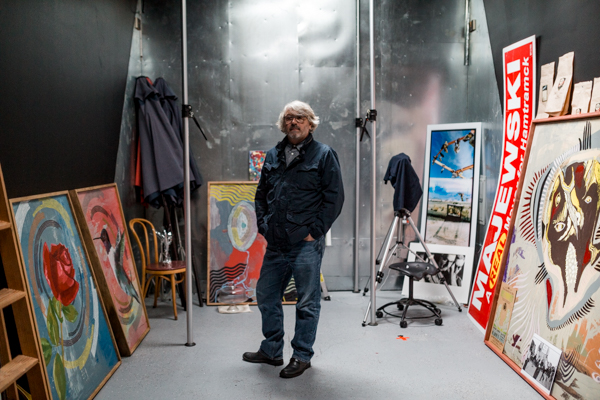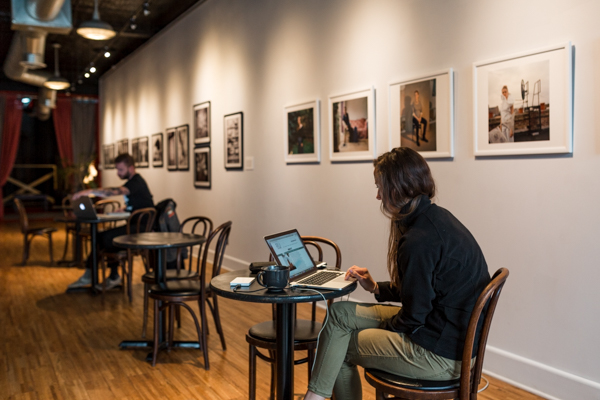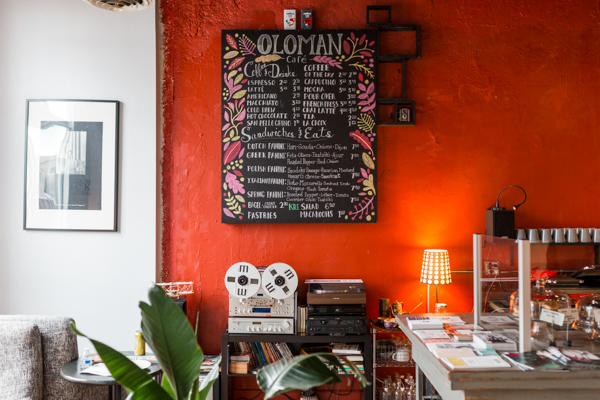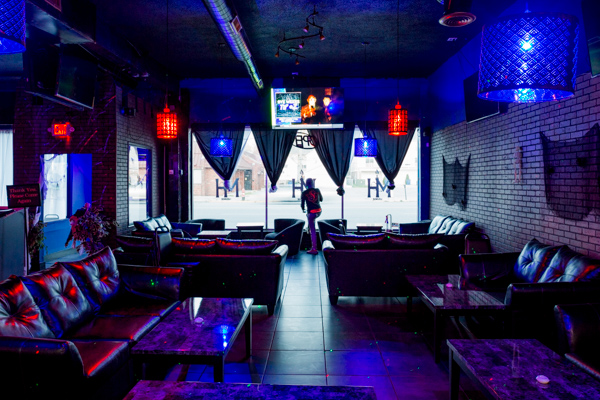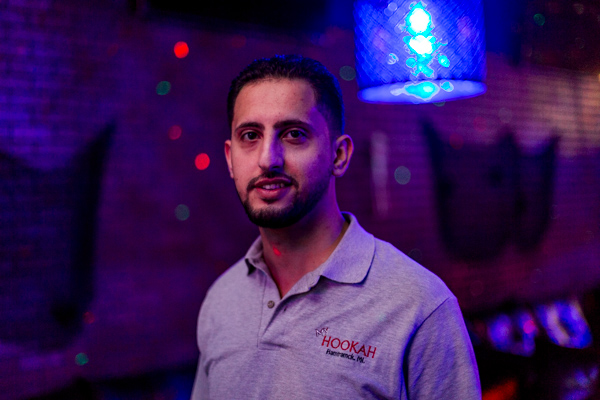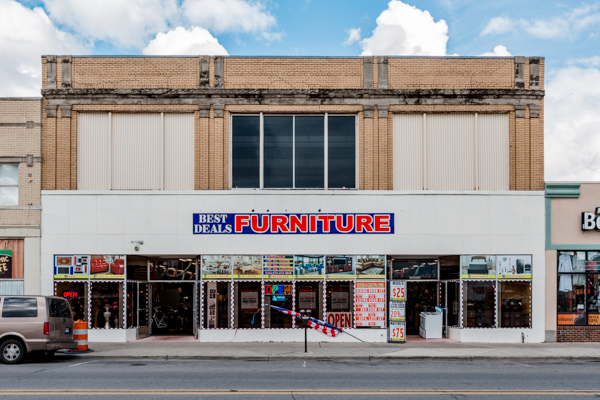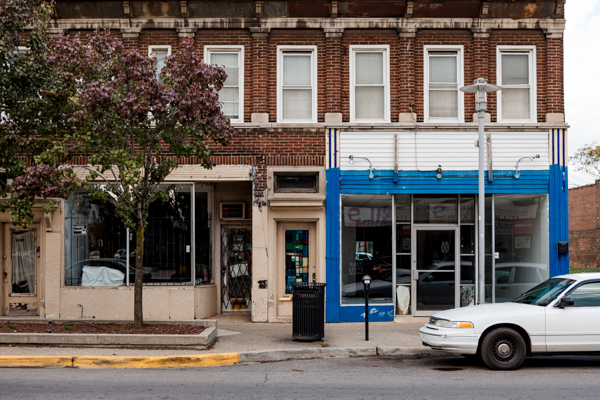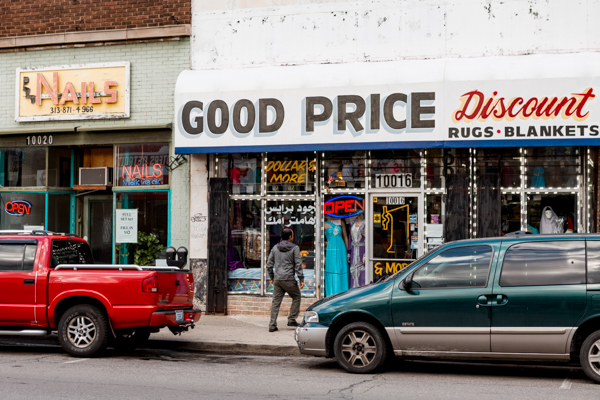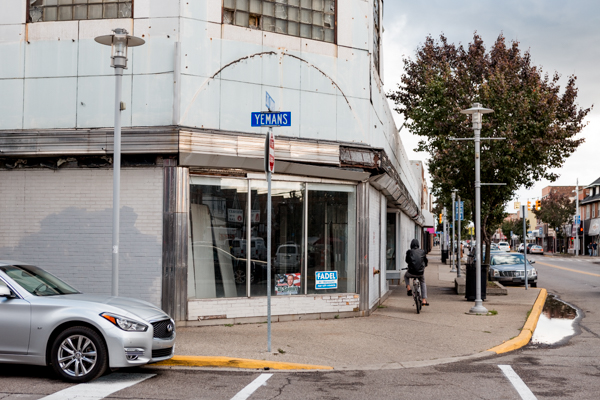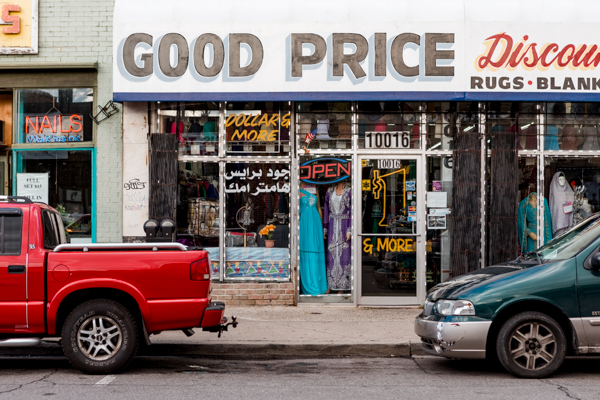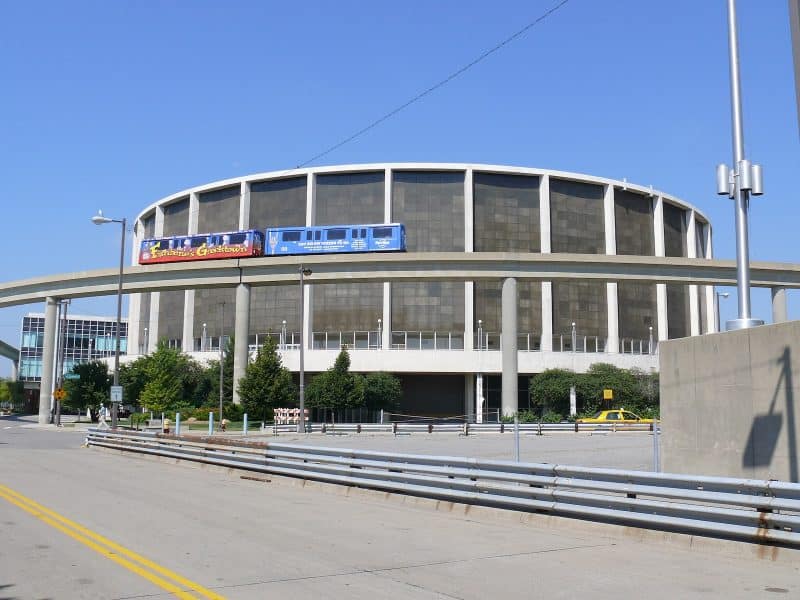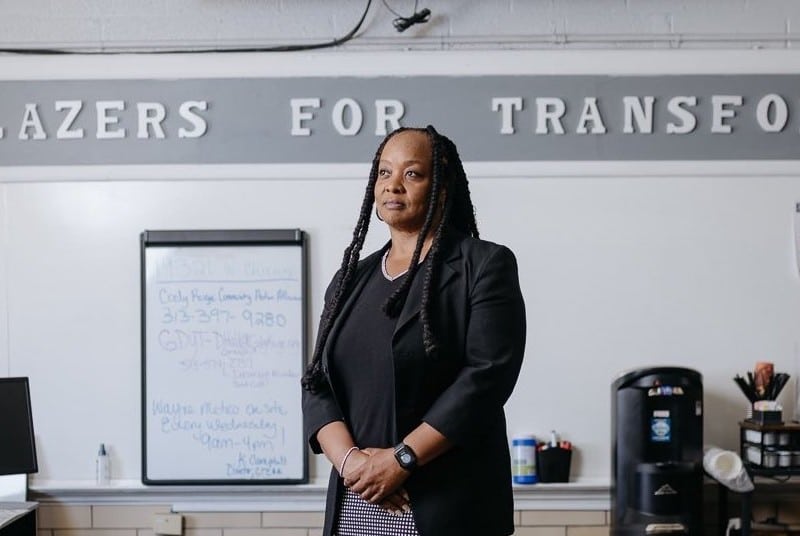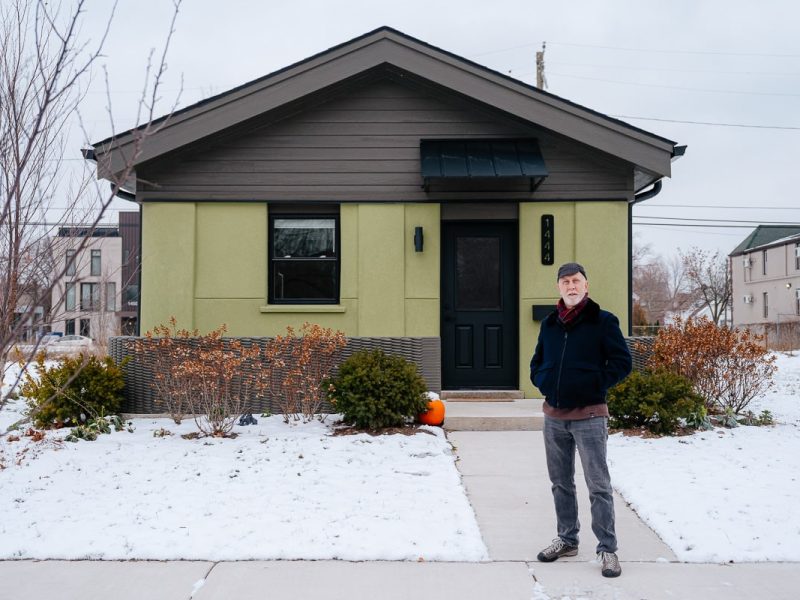Detroit’s next hot commercial corridor: Will Jos Campau make Hamtramck a boom town once again?
Jos. Campau was once the second most popular shopping destination in metro Detroit. While it recently had fallen into a bit of a malaise, an influx of new businesses has the corridor on the verge of a breakthrough.
This is the second article in a series, “Detroit’s next hot commercial corridor,” examining districts in Detroit, Hamtramck, and Highland Park that have the potential to become hubs of commercial activity, and what’s needed to get them over the threshold.
Read the first entry on Jefferson-Chalmers here.
Kyle Dubay and Bo Shepherd had an idea that Hamtramck, and the Jos. Campau corridor in particular, was the right spot for their growing manufacturing business, Woodard Throwbacks. But they got definite confirmation when locals started dropping in even before they removed the paper from the windows or the fresh paint dried on the façade of their new workshop and retail store.
Sometimes, curious neighbors brought the morning newspaper. Other times, passersby stopped in to shoot the breeze. Whatever the pretense, the questions were all the same: They wanted to know what was happening in the former auto dealership that had sat empty for so long. Seeing a hip destination store like Woodward Throwbacks open an anchor location on Jos. Campau became a kind of talisman—a sign that something had shifted in this district.
The connections he made with other store owners, fellow makers, and Hamtramck residents is one more reason Dubay believes he and Shepherd made a good decision—financially and creatively—when they moved their business from Detroit to this up-and-coming commercial strip.
“Hamtramck is becoming an area where you can make a mark—you can still have that dream of starting something,” says Dubay, who counts specialty shops such as Bon Bon Bon, Detroit City Football Club’s store, and Oloman Cafe as examples of insightful and innovative entrepreneurs who also recently opened storefronts along Jos. Campau.
It is the kind of shopping district where Ali Zindani felt comfortable opening MyHooka Lounge to draw Millennials to the city to chill with friends. It’s what wooed Alissa Shelton and her family to purchase the former financial institution turned Chinese restaurant they lovingly renamed Bank Suey. It also still charms Magdelena Srodek, co-owner of Srodek’s Sausage and a lifelong foodie who come back to Hamtramck time in again for its diversity, cultural relevance, and tight neighborhoods who support her family-owned store.

It’s also what inspired Zlatan Sadikovic to sell his Oakland County home and buy two buildings along Jos. Campau. First, he opened his dream coffeehouse, the metropolitan melting pot known as Oloman Café. Now, Sadikovic is installing a photography studio and apartment for him and his wife—what started as a pied-à-terre has evolved into a permanent home in Hamtramck.
“Where else can you experience the world in two square miles?” asks the Bosnian-born Sadikovic, echoing the city’s motto. “When people heard we were investing in Jos. Campau and Hamtramck, they told us it was a community divided. We dismissed that. What we see are daily encounters and conversations between people of all backgrounds.
“Buying here has been one of the best choices I’ve made.”
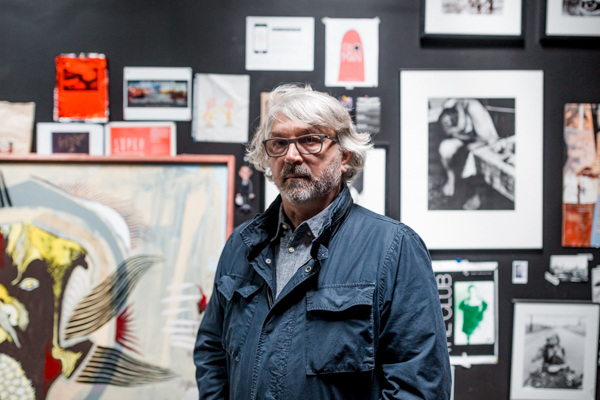
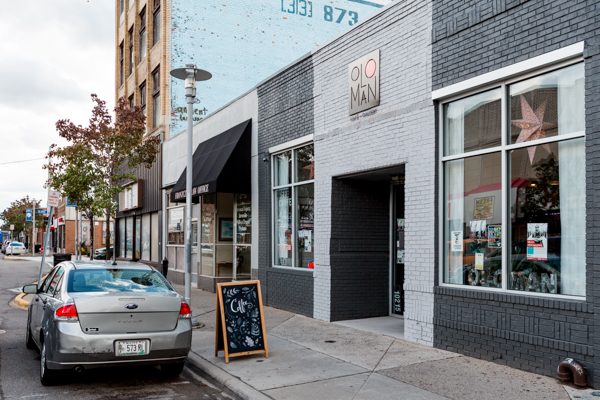
Yet a variety of store owners and residents agree: Jos. Campau still needs smart marketing to draw shoppers back, strong focus on safety, an increased variety of retailers, and help for newcomers trying to navigate the zoning and regulation processes. The harder question is how to maintain the city’s unique character and diversity while working to attract larger businesses and developers.
With a foundation dating back nearly a century, Jos. Campau is more than Hamtramck’s main shopping district. Many of its structures were built during the glory days of John and Horace Dodge, two of the keenest automotive minds of their time. The brothers’ Dodge Main turned Hamtramck from a small village of about 3,500 to 48,000 residents by 1920. Hamtramck became a city in 1922, protecting itself and its traditions from being absorbed into the ravenous metropolis of Detroit.
That original Dodge Main location closed in 1981, as did the American Axle Manufacturing plant in 2012. Due to the steady eroding of the area’s manufacturing base and the actions of controversial real-estate investor Henry Velleman—who’s let numerous storefronts remain vacant—Jos. Campau sunk into a kind of malaise.
But many feel the commercial strip is poised for a rebound, or perhaps is in the midst of one. It certainly has a strong foundation to work with. The street is surrounded by densely populated neighborhoods of single-family homes that now house an array of ethnicities from Polish to Bengali to Asian to Middle Eastern.
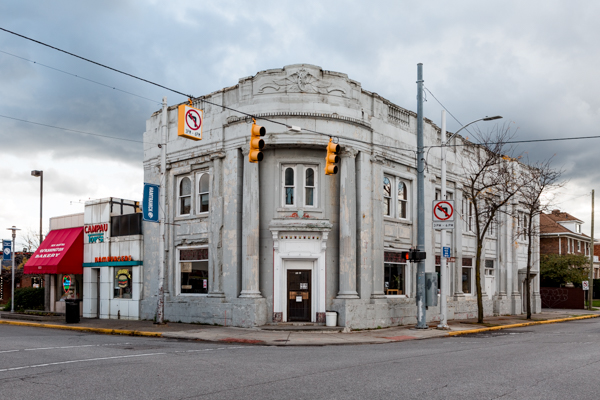
What makes Jos. Campau stand out as a commercial district then as well as now is that it is woven into the collective memory of everyone who has lived in Hamtramck, visited the city’s divine Polish restaurants, or drank in one of the district’s many bars that date from the heady days of Prohibition to today. Jos. Campau was at one time the second most popular shopping destination in metro Detroit, according to author Greg Kowalski in his book, “Hamtramck: Then & Now.”
That was likely because it contained smart, responsive shop owners and a kind of human scale that one could not find in its neighboring cities, says Mayor Karen Majewski.
Majewski, who also owns the resale shop Tekla Vintage along Jos. Campau, invested in the building in part because it was vacant, and to demonstrate the value of long-term investment in Hamtramck.
Visible changes like this along Jos. Campau, she says, create a palatable buzz. “I thought it was important to take (the business) out of my basement and create a visible space on Jos. Campau,” Majewski says. “Our business district grows out of our community. It’s organic. When we see needs, we fill them.”
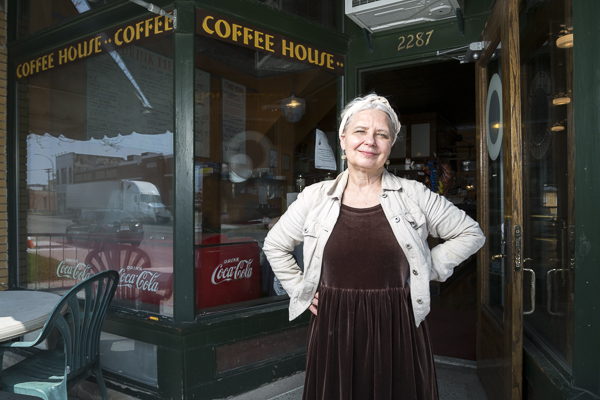
Srodek agrees. She was almost five years old when her family immigrated from Poland to work at the deli her grandparents started. Her mother and father bought the corner building that houses their market in 1982, and the family has only grown since then, adding two neighboring houses so all of them can live “like ducks in a row.”
“Hamtramck is a great place,” Srodek says, who quickly acknowledges that Jos. Campau’s cycle of boom and bust may have turned shoppers and potential business owners away. Now, with the growth of new stores and services, she believes the newfound attention on Hamtramck on Jos. Campau in particular is timely, warranted, and destined.
“It’s great when you feel that energy and see it start to grow,” Srodek says. “A lot of it has to do with creative, out-of-the-box thinking. There’s Woodward Throwbacks, there’s Better Life Bags, there’s the Detroit City Football Club all bringing people to the city. They’re all connected to Jos. Campau or adjacent, and they’re investing in the community in so many ways.”
A sign of that investment in the commercial district and the community will happen soon. Woodward Throwbacks is hosting its first holiday market at its new location on Jos. Campau. Called “Hamtramck Open Market,” the event will include 50 vendors, food, and, most importantly in a city that stands for hard work balanced with good times, lots of beer.
It’s the kind of inclusiveness that Jos. Campau is known for, Zindani says.
“We’re hoping that down the road, more businesses will come to Hamtramck and start investing here. There’s opportunity for them.”
All photos, except where mentioned, by Nick Hagen.
